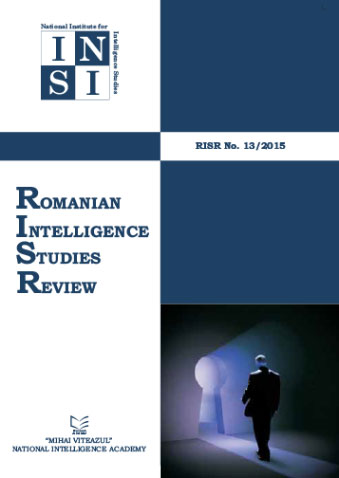SYMBOLIC INTERACTIONISM AS KEY CONCEPTUAL FRAME FOR INTELLIGENCE ANALYSIS
SYMBOLIC INTERACTIONISM AS KEY CONCEPTUAL FRAME FOR INTELLIGENCE ANALYSIS
Author(s): CRISTINA POSAȘTIUCSubject(s): Social Sciences
Published by: National Institute for Intelligence Studies
Keywords: symbolic interactionism; intelligence analysis; collective behavior;
Summary/Abstract: The goal of this paper is to explore the potential of using sociological paradigmsas analysis frameworks within the intelligence tradecraft. Although macro-orientedtheoretical systems (e.g. structuralism, functionalism, conflict theories) have tried andtested uses in intelligence, especially when it comes to making sense of large-scalephenomena, events and trends, there is still little attention given to the paradigm ofsymbolic interactionism. At first glance, intelligence analysis has little to gain,knowledge-wise, from an empirically untestable scientific perspective which deals withthe social micro-cosmos. Nevertheless, keeping in mind the fact that societal systems areconstantly negotiated, consolidated and reformed through the most minuscule of dailyinteractions, understating the latter can help paint a correct picture of the “sharedreality” of large or small groups at any given moment. I believe that intelligencepractitioners can use insight derived from symbolic interactionism to better apply theirtradecraft in an extensive palate of cases. Moreover, in an increasingly virtualized socialuniverse, human interactions take new forms and generate new types of sharedmeanings and symbols, altogether changing the very social structure that fosters them.For intelligence practitioners that operate online, from all-source strategic analysts toOSINTers and SOCMINTers, understanding how this new medium emerges is of theutmost importance
Journal: Romanian Intelligence Studies Review
- Issue Year: 2015
- Issue No: 13
- Page Range: 141-148
- Page Count: 8
- Language: English

